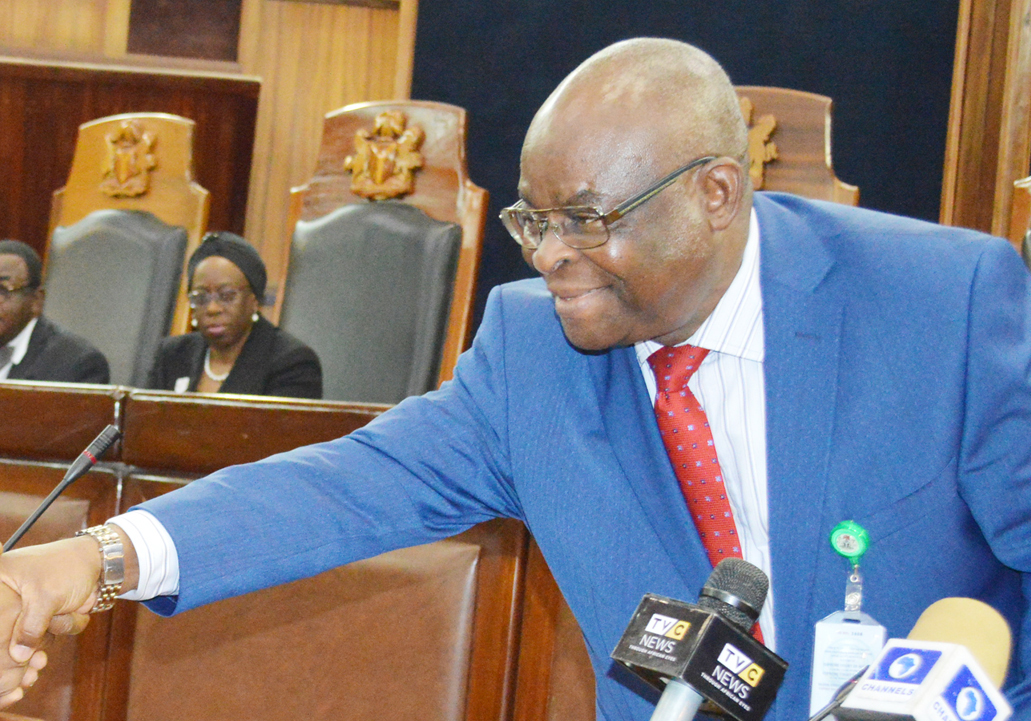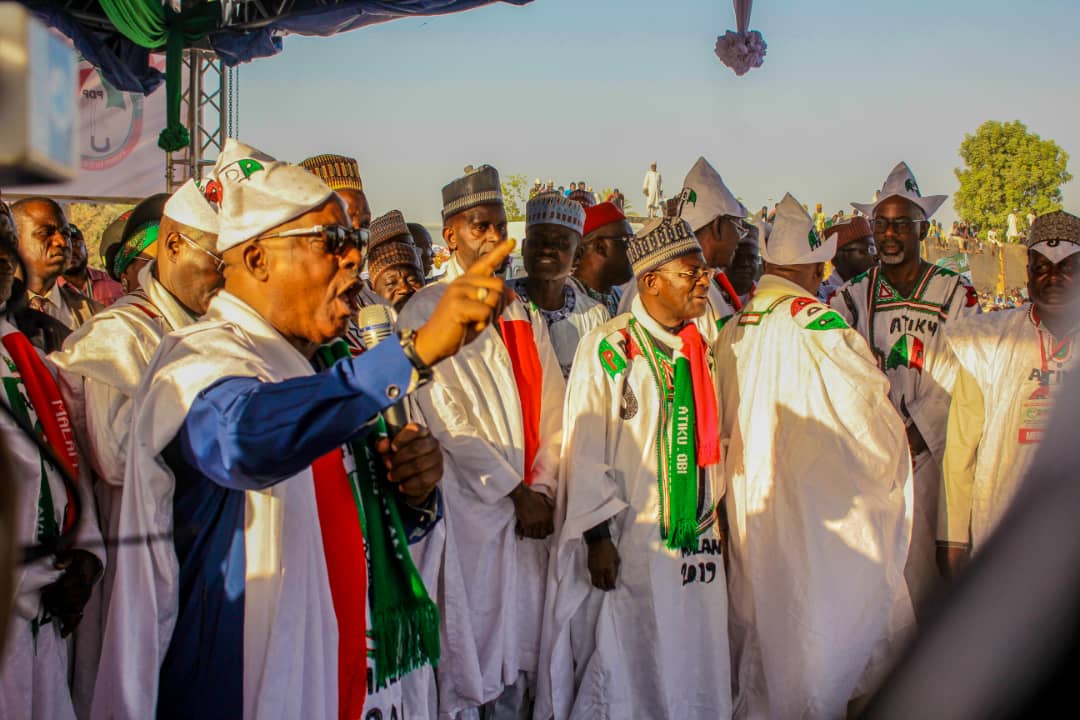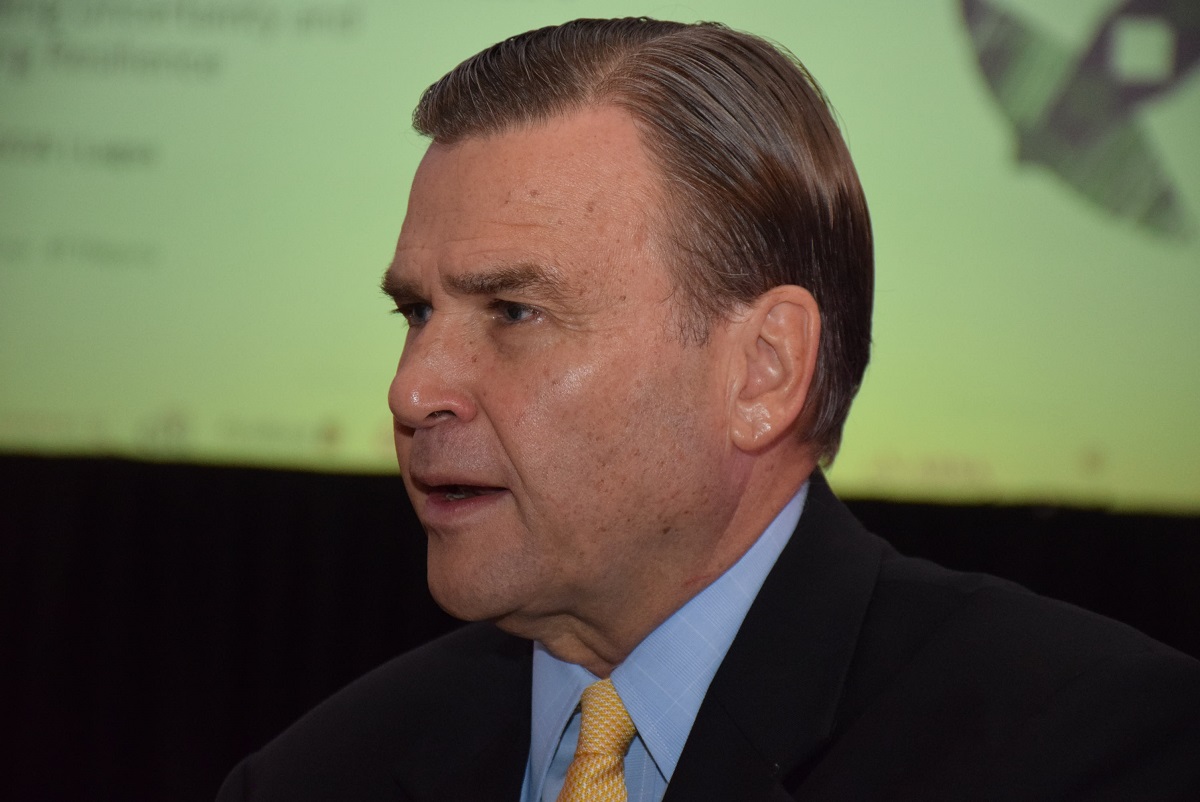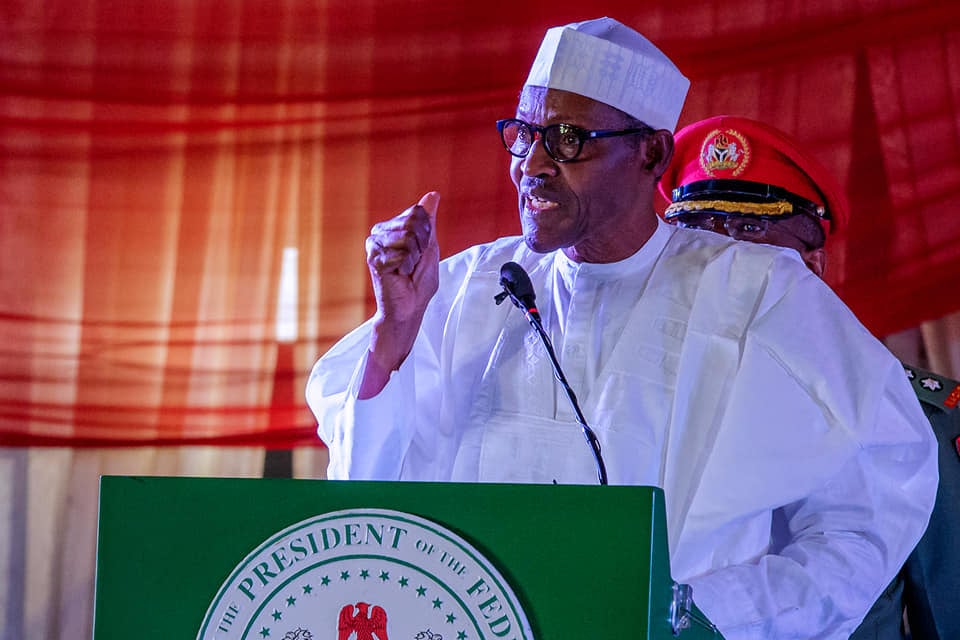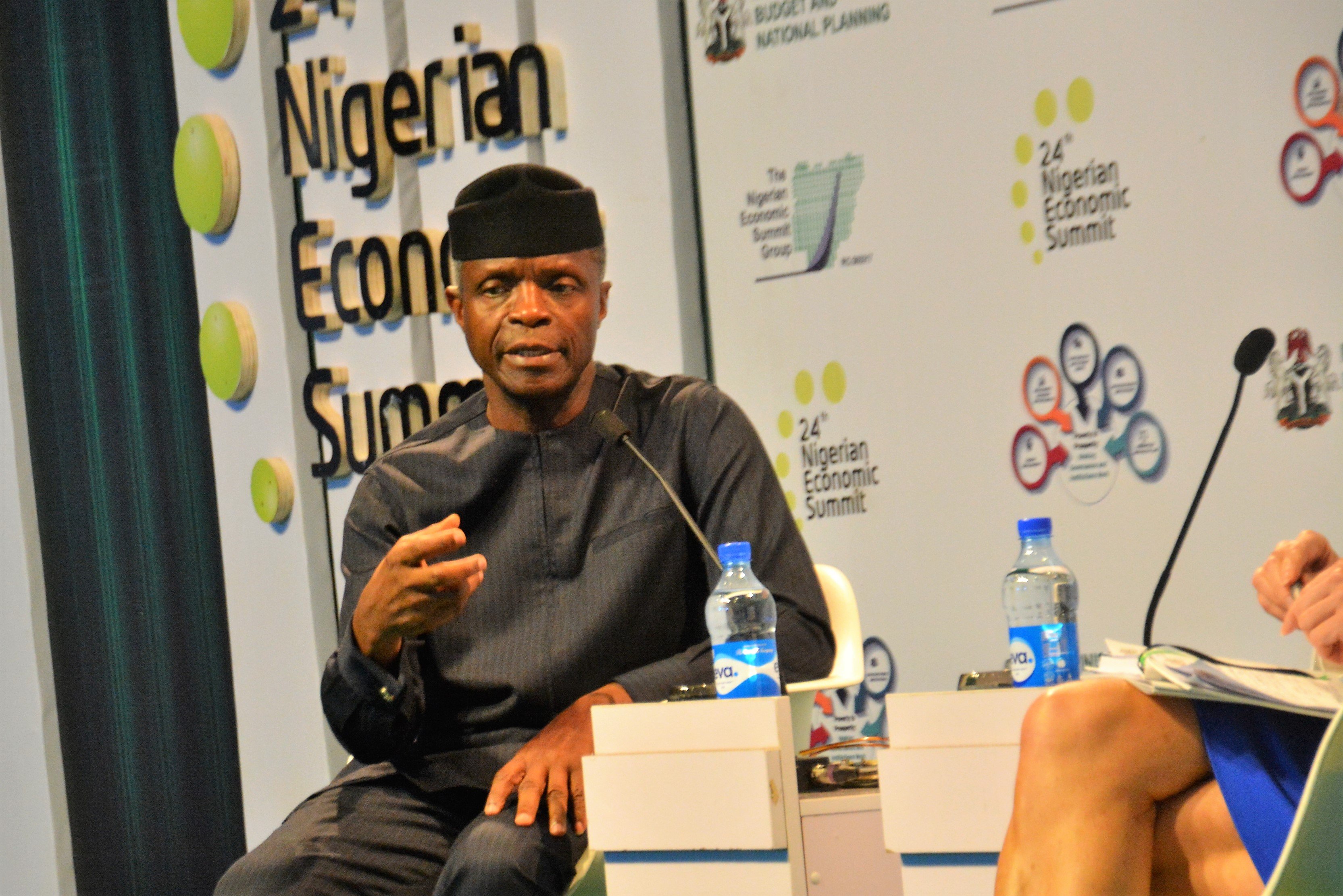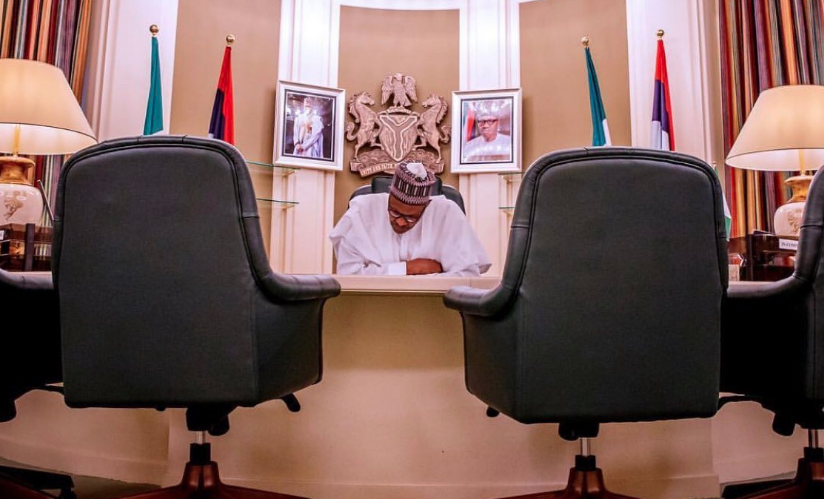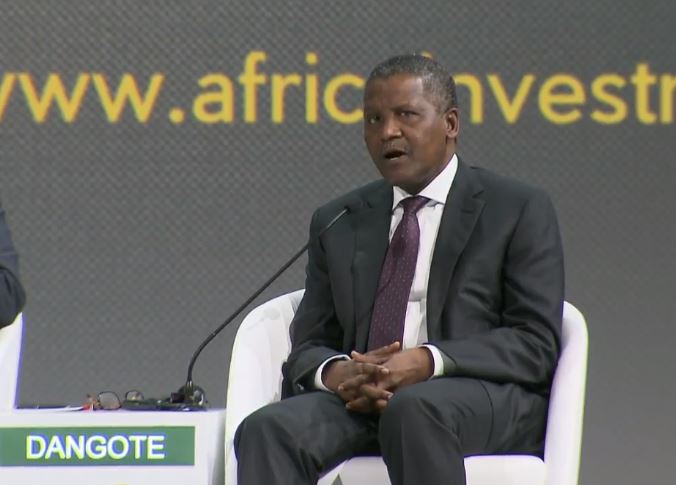Pic.28. From left: Chief Justice of Nigeria, Justice Walter Onnoghen (R) congratulating one of the newly appointed judge of the Industrial Court, Justice Nweneka Gerald-Ikechi, during the Swearing-in of 19 new Judges of the National Industrial Court of Nigeria in Abuja on Friday (14/7/17).
03550/14/7/2017/Ernest Okorie/JAU/NAN
Ahead of the emergency meeting of the National Judicial Council (NJC) on Tuesday, the office of the attorney-general of the federation (AGF) has sent a list of criminal allegations against Water Onnoghen to the body, TheCable can report.
Insiders at the ministry of justice informed TheCable that the petition contains a number of damaging allegations against the chief justice of Nigeria (CJN), including bank statements and title deeds of properties said to have been traced to him.
The figures involved are said to be in billions of naira and several millions of dollars — as well as dozens of houses.
“The Code of Conduct Bureau (CCB) did not file these criminal allegations against the CJN at the Code of Conduct Tribunal (CCT) because it is a separate issue from non-declaration of assets,” a senior official of the ministry told TheCable.
Advertisement
“There have been questions about the legality of Onnoghen’s suspension by the president, but section 11 of the interpretations act states clearly that he who has the power to appoint also has the power to discipline. We are convinced the president acted within the laws of the land.
“Nevertheless, the more serious criminal allegations have now been fully investigated. These allegations point to unexplained wealth. The entire bundle has been sent to the NJC so that the body can do its job and allow Onnoghen to face criminal prosecution. That is a completely different matter from the case of non-declaration of assets before the CCT.”
The CCT adjourned indefinitely on Monday, saying it was obeying an order of the court of appeal.
Advertisement
TheCable earlier reported that members of NJC have summoned an emergency meeting for Tuesday to discuss the crisis that has hit the judiciary following the suspension of Onnoghen and the appointment of Ibrahim Mohammad as the acting CJN — two presidential actions that have become a subject of controversy and litigation.
Neither Onnoghen nor Muhammad will preside over the NJC meeting, sources told TheCable, with strong indications that the body would act decisively to put the controversy to rest.
WHAT DO NJC RULES SAY?
According to the rules guiding the conduct of NJC meetings, five or more members can summon a meeting subject to a request made to the chairman.
Advertisement
TheCable was unable to confirm if this requirement was met.
The rules state that:
- The council shall hold meetings at such times and place as the chairman may appoint.
- Notwithstanding the provision of paragraph (1) of this regulation, a meeting of the council shall be convened if five or more members make a request to that effect, in writing to the chairman, specifying the business to be transacted.
- Every meeting of the council shall be presided by the chairman and in his absence, by a member selected by a simple majority of members present and/or nominations in the call of expression of interest and in the request for nomination.
- The quorum for a meeting shall not be less than one-third of the total number of the council members as at the date of that meeting.
- A member shall be entitled to one vote and the simple majority votes shall be the decision of the council.
WHO ARE NJC MEMBERS?
According to 1999 constitution, members of the council are:
Advertisement
- the chief justice of Nigeria who shall be the chairman
- the next most senior justice of the supreme court who shall be the deputy chairman
- the president of the court of appeal
- five retired justices selected by the CJN from the supreme court or court of appeal
- the chief judge of the federal high court;
- five chief judges of states to be appointed by the CJN from among the chief judges of the states and of the high court of the FCT, Abuja
- one grand kadi to be appointed by the CJN from among grand kadis of the Sharia courts of appeal to serve in rotation for two years;
- one president of the customary court of appeal to be appointed by the CJN from among the Presidents of the Customary Courts of Appeal to serve in rotation for two years
- five members of the Nigerian Bar Association (NBA) who have been qualified to practise for a period of not less than 15 years, at least one of whom shall be a SAN, appointed by the CJN on the recommendation of the national executive committee of the NBA to serve for two years and subject to re-appointment, provided that the five members shall sit in the Council only for the purposes of considering the names of persons for appointment to the superior courts of record; and
- two persons not being legal practitioners, who in the opinion of the CJN, are of unquestionable integrity.
WHAT ARE THE POWERS AND DUTIES OF NJC?
The constitution says the NJC shall have power to, among other things:
Advertisement
- recommend to the president the removal from office of the specified judicial officers and to exercise disciplinary control over such officers;
- recommend to the governors the removal from the office of the judicial officers
- collect, control and disburse all moneys, capital and recurrent, for the judiciary;
- advise the president and governors or any matter pertaining to the judiciary as may be referred to the council by the president or the governors;
- appoint, dismiss and exercise disciplinary control over members and staff of the council.
Add a comment
